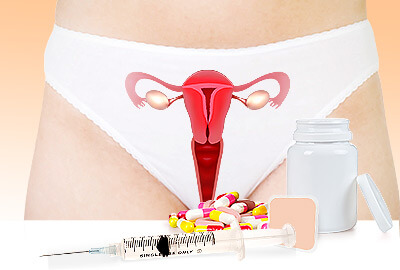According to research, obese postmenopausal women are a more likely to develop breast cancer than women of the same age who are within a healthy weight range. Women who are still going through the menopausal transition are also at a higher risk of getting breast cancer. Researchers believe there is a link between body fat storage and cancer during postmenopause. Read on to find out more.
The Science

Researchers believe that excess body fat causes the body to produce higher than normal amounts of estrogen. High estrogen levels during postmenopause are linked to an increased risk of breast cancer. A European study conducted on approximately 177,000 women between the ages of 18 and 80 measured height, weight, body mass index (BMI), waist circumference, and waist-to-hip ratio, age, and took into account whether or not women took hormone replacement therapy. Over a five-year period, researchers found that under 2,000 of the women developed breast cancer, and that there are some factors that can increase a woman's risk.
Body Fat and Breast Cancer
At the beginning of the study, weight was the strongest indicator for breast cancer. A full 65% increase in the risk of breast cancer was reported among overweight women. Women with a BMI greater than 25, considered overweight or obese, are at the highest risk for developing breast cancer.
Height and Breast Cancer
In addition to measuring body size, some researchers looked for the association between height and the risk of breast cancer and found no relationship at all between the two factors - whether during premenopause or postmenopause. Other factors, such as bone growth and infections during fetal development or childhood are also believed to have little effect on breast cancer.
HRT and Breast Cancer

Body fat percentage was associated with an even higher risk of breast cancer among women using hormone replacement therapy, especially if it was used for a long period of time. Thus, researchers found that obese postmenopausal women using hormone therapy had a critical level of risk for developing breast cancer or other types of malignancies.
More Information
Women who are overweight and over the age of 50 are at the highest risk of developing breast cancer. This risk increases with use of hormone replacement therapy. Women should seek to maintain healthy body weight through a balanced diet and regular exercise regime. This will not only improve overall health and self-image, it will also lower a woman's risk of developing breast cancer.
For more information about the postmenopausal phase and ways to treat your symptoms, follow the links below.
Sources
- BMJ Group. "Menopause: What is it?" Patient Leaflet. 2007.
- Hopkins, Virginia. Lee, John R. M.D. What Your Doctor May Not Tell You About Menopause. New York: Warner Books Inc., 1996.
- Love, Susan M.D. Menopause and Hormone Book. New York: Three Rivers Press, 2003.
- Martin, Raquel. The Estrogen Alternative. Rochester, VT: Healing Arts Press, 2000.



